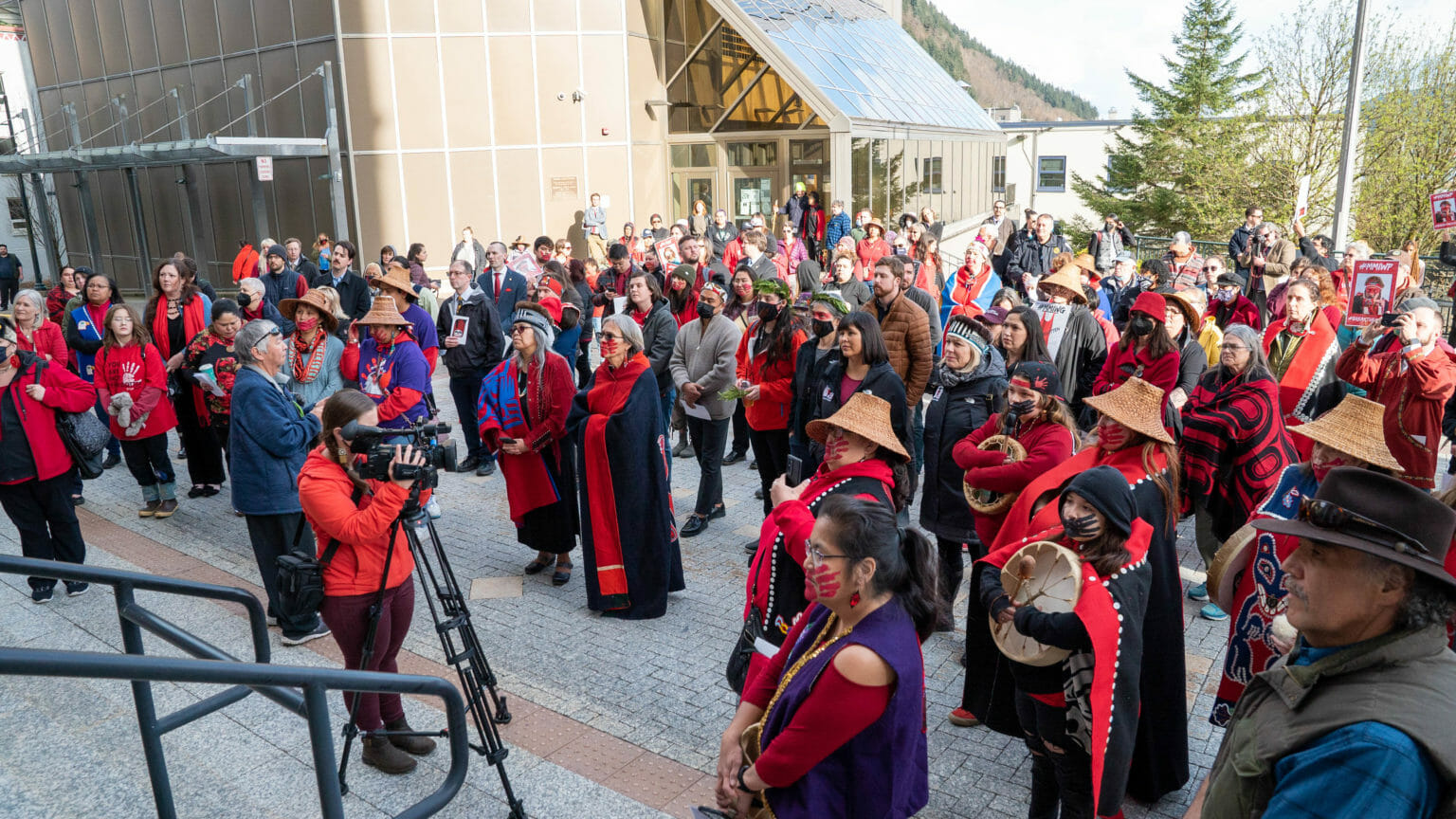
- Details
- By Yvonne Krumrey - KTOO
Central Council of Tlingit and Haida Indian Tribes of Alaska former chief justice Michelle Jaagal Aat Demmert has been appointed to the Not Invisible Act Commission.
According to the Department of Justice, the commission was created to “combat the epidemic” of missing and murdered Indigenous people. Secretary of the Interior Deb Haaland announced the commission on May 5, Missing and Murdered Indigenous Peoples Day.
“This is not an easy commission to be part of, we will have to take testimony we will have to hear stories,” Demmert said.
This story originally appeared atKTOO. Republished by Native News Online with permission.
She anticipates that these testimonies from victims’ families will make her eager to see change enacted quicker.
“And of course, you know, as a problem solver, what I want to do is help find solutions,” Demmert said. “And I may not be able to immediately respond in that way.”
She said she expects she will need support from elders, which the commission lacks right now.
“Missing from the commission, I think, is a named tribal elder who could really hold space for us in, send us off in a good way,” Demmert said. “And also, you know, just help us. Because this is going to be really, this is going to be really hard.”
When the commission meets for the first time in two weeks, Demmert says they plan to start broadly in their look at communities impacted by high rates of missing and murdered Indigenous people. She says they will look into systemic issues and why those led to the crisis.
“And of course, it’s not an easy ‘why’ to answer because it’s a historical factor. And so we have to acknowledge the issues that led us to this situation,” she said.
From there, the commission plans to look at using research to influence and shape policies, and improve communication between tribal, state and federal resources.
The commission has 37 members that include tribal leaders, survivors, families of those who have been missing and murdered, and law enforcement.
Help us defend tribal sovereignty.
At Native News Online, our mission is rooted in telling the stories that strengthen sovereignty and uplift Indigenous voices — not just at year’s end, but every single day.
Because of your generosity last year, we were able to keep our reporters on the ground in tribal communities, at national gatherings and in the halls of Congress — covering the issues that matter most to Indian Country: sovereignty, culture, education, health and economic opportunity.
That support sustained us through a tough year in 2025. Now, as we look to the year ahead, we need your help right now to ensure warrior journalism remains strong — reporting that defends tribal sovereignty, amplifies Native truth, and holds power accountable.
 The stakes couldn't be higher. Your support keeps Native voices heard, Native stories told and Native sovereignty defended.
The stakes couldn't be higher. Your support keeps Native voices heard, Native stories told and Native sovereignty defended.
Stand with Warrior Journalism today.
Levi Rickert (Potawatomi), Editor & Publisher

